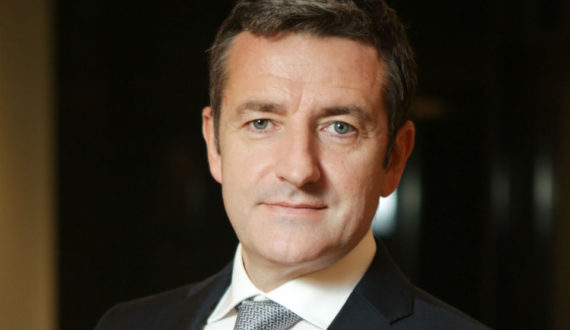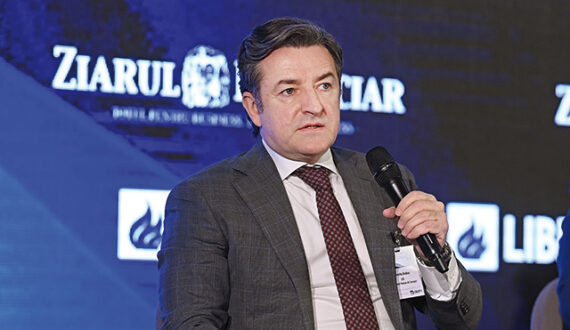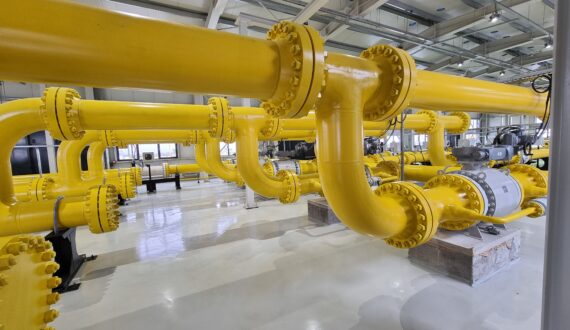We invite you to read below the interview given by CEO Adrem, Corneliu Bodea for www.newsenergy.ro
C.B.: There are some major issues that Romania needs to address in order to create an environment conducive to the development and affirmation at regional level of our energy sector, which does not lack resources, competent specialists in the field and market players to leads us to progress. An issue that has been perpetuated over time is the unpredictable legislative framework, which does not encourage investment and this is true not only for the energy industry, because I have said on several occasions that I admire entrepreneurs and their courage to move forward in -a context that was not more favorable even before the pandemic.
Smart grids, smart metering, but also the production of energy from renewable sources along with the development of storage capacity through batteries are some examples of priority measures on the agenda of a Government to create the premises for a sustainable economic reconstruction.
Also, gas resources in the deep perimeters of the Black Sea can ensure the internal consumption of natural gas , as well as the recovery of the petrochemical industry, which is why it is important for Romania to start exploitation as soon as possible. and thus strengthen their position in the region.
Climate change dominates the global agenda. Sustainability is beginning to be included by default in the development strategies of large companies, but also of large cities. How seriously is this issue treated in Romania and how should we proceed?
The images in northern China in which, temporarily, with the outbreak of the health crisis and the slowdown in industrial activities, the smog curtain has been set aside, are very telling in this regard. We have seen the same phenomenon in the American metropolises and in the cities of Europe that in a way “froze” in a calm that allowed us to see more clearly than ever what are the effects of our actions. Sustainability no longer depends on a certain progressive thinking or a goal that we must achieve in a number of years. It must be ensured now and everyone needs to be involved, from the state authorities, to the companies that have to see beyond the flight for marginal profit and to us, which we can no longer continue with the same old behaviors that brought us here.
Last year was a full one in terms of European regulations for transposing the Green Deal, which has as its central objective a 55% reduction in greenhouse gas emissions by 2030 and neutrality in 2050. We had the Wave of renovations, Hydrogen Strategy, Taxonomy, etc. How does all these changes affect / influence our energy policy and how well are they transposed into national policies
The European Commission is the main European force on climate change policy commitments. The goal of carbon neutrality by 2050 is unparalleled in history, with an intermediate limit of greenhouse gas emissions set at 55% by 2030. Recent history shows that it is possible, and Romania is an example of good practice in at least the development of energy from renewable sources. to decide with confidence and courage for the benefit of industry and the final consumer.
Regarding Taxonomy, respectively the development of an investment classification system for economic activities, I consider that this set of rules represents the cornerstone for investors and for achieving the environmental objectives of the European Union for 2030, as well as for climate neutrality until 2050 .
In addition, in order to meet the limits recommended by the EC, the fuel mixture used should contain carbon dioxide, such as hydrogen. At the moment we do not know the economic feasibility of such technical solutions, there is no hydrogen market for estimating real costs in the medium and long term and implicitly it is impossible to verify the price endurance criterion for the final consumer in Romania. >
Considering Romania’s commitments within the National Integrated Energy and Climate Change Plan as well as in the National Energy Strategy 2020-2030 with a view to 2050, we express our doubt about achieving the targets in terms of economic efficiency and affordability for energy users.
Significant further changes will follow, including the revision of the Renewable Energy Directive and the Energy Efficiency Directive. What are, from your point of view, the perspectives of the Romanian energy industry regarding the transition to a low carbon economy? How should this transition be made? What opportunities / risks does it generate for both the energy sector and the economy as a whole?
The obligation of those who lead us will be to ensure legislative predictability, competent decision-makers, financial support for technologies that will reduce carbon emissions , while developing new sources of electricity to gradually replace those that use coal, as well as energy efficiency measures throughout the value chain of the energy sector.
Furthermore, it is vital to encourage the field of research and innovation and to develop public-private partnerships with investors. Romania should also play an active role in Europe in the production of green hydrogen by electrolysis, using electricity from renewable sources as well as hydrogen from hydrocarbon sources, but with carbon sequestration.
We are seeing that building standards are getting stricter, so that this sector can play its really important role in combating global warming. What is the potential of energy efficiency in buildings in Romania and what measures would you recommend the Government to take for this sector?
Starting with December 31, 2020, in Romania all buildings for which building permits are issued after this date must comply with the “nearly zero energy building” standard, according to European directives. For public buildings this was a mandatory requirement since the end of 2018, and now the responsibility to build energy efficiently falls on everyone, both the state and private companies that invest in office buildings or residential complexes, but also ours, of each.
Regarding the already existing buildings, it is not a novelty for anyone that we have many old buildings – in Bucharest, for example, statistics show that a third of the buildings are over 50 years old, and the consolidations we know are difficult and difficult, no more we are talking about energy efficiency. Potentially exists precisely because we have a lot of work to do in this regard, and buildings with a significant contribution to greenhouse gas emissions are a key sector in achieving the objectives of the European Union, if we succeed in implementing this energy efficiency. A clear and transparent legislative framework is needed and it is the obligation of local authorities, which also receive funding from the European Commission , to do so and to be involved in providing the necessary legislative and financial support.
Read the rest of the article on newsenergy.ro







